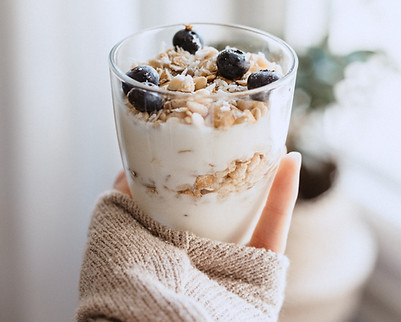


As you enter midlife you also enter a transitional chapter of your life which can leave you feeling fatigued, frustrated and overwhelmed. While these XX may challenging, they are not impossible to overcome.
During the menopause and perimenopause, your mood and energy levels may be fluctuating and your body shape changing, but with practical realistic programmes that get to the heart of your problem – I can help!
Making the right diet and exercise choices can prevent muscle loss, maintain bone density, and increase energy levels, as well as improving mood. Following personalised exercise plans and the correct nutrition advice, together they can help relieve menopausal symptoms, while nourishing your body and mind.
Allowing time to gain a deep understanding of your hormone and body changes, while learning new techniques and building a relationship with food and exercise can empower your menopause transition.
I can help you become the happiest and healthiest version of yourself.
Protein is an important nutrient and a vital part of the diet. Composed of one or more chains of amino acids, they have a number of roles and functions. Protein participates in virtually every cellular process in the body, from the involvement of our ‘feel good hormones’ – serotonin and dopamine, to the repair and growth of muscle tissues.
It is also more satiating than the other macronutrients, (carbohydrates and fats), helping regulate appetite and keeping you fuller for longer!
Our body’s proteins are continually being broken down and replaced. It is therefore essential to consume enough dietary proteins to keep up with the turnover demands.
But what are the best sources of protein and how much should I consume?
During our menopause consultation, calculations will be made to work out the amount your body requires, as well as the different ways to include protein into your daily routine.
As we age, our muscle mass naturally declines (known as sarcopenia), leading to the reduction of muscular function and strength.
This can be prevented with the Nutrition Approach.
In order to protect against this, research has shown that it’s essential to increase lean body mass by practicing resistance & strength training during menopause & perimenopause.
It is therefore imperative to plan and create a comprehensive tailored exercise program, and this is where I can help!




